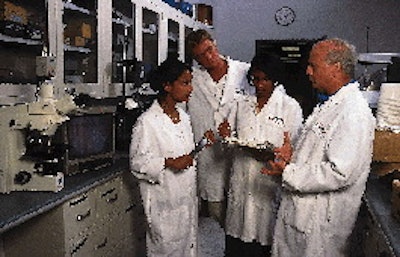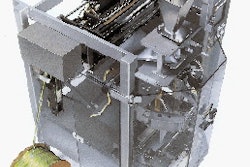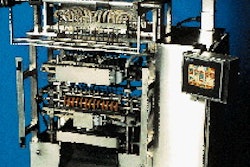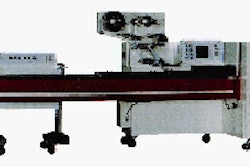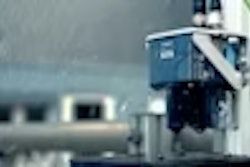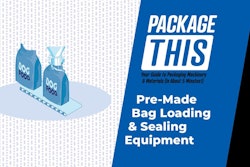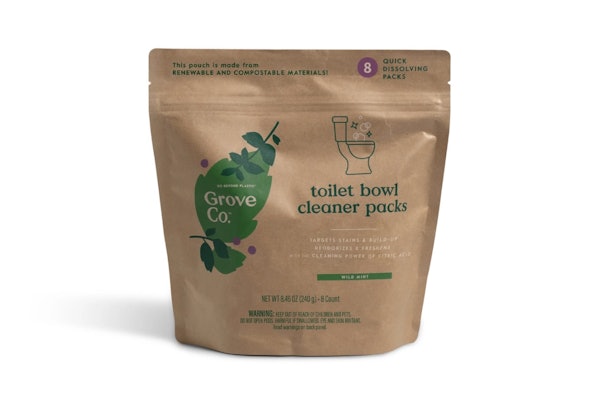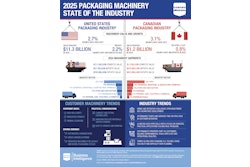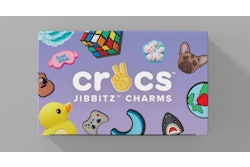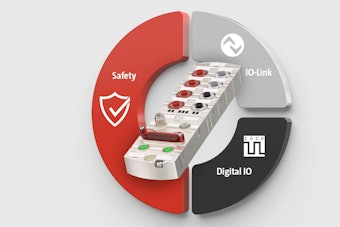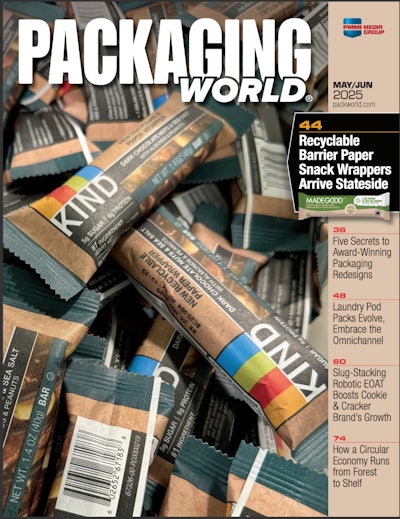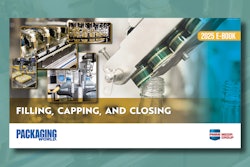Interns and co-ops-undergraduate students who work for companies for college credit-are becoming a major source of entry-level packaging professionals for manufacturers. Michigan State University, East Lansing, MI, is the grand-daddy of collegiate packaging programs, and it holds career fairs for its students and graduates twice a year. To gauge the value of career fairs in packaging, Packaging World talked to some companies that participated in MSU's career fair held in the spring of '98. At that two- to three-day event on MSU's campus, more than 70 companies sent representatives to meet with both students and graduates. Those companies represented a relatively even mix of manufacturers and suppliers. Our contacts focused on packaged products companies looking to find new packaging people. Two companies who regularly participate in the MSU career fair, Kraft Foods, Northfield, IL, and Carter Wallace, Cran<> bury, NJ, specifically seek to identify and hire interns or co-op undergraduates for six months of on-the-job training and work while undergraduates. Although the two companies' needs and emphases are far different, their goal is the same: finding capable students who can assist the companies while the students gain first-hand information about commercial packaging at major companies for course credit. Richard Kaufman, associate technology principal at Kraft Foods' Tarrytown, NY, laboratory, says that Kraft offers students the "experience" of living near New York or Chicago. "We're looking primarily for research people. It's all under packaging research, and we're looking for co-ops, not full-timers. We consider the co-ops to be potential full-timers because practically all our entry-level positions are filled by former co-op students," Kaufman says. At the spring fair, Kraft sent a team of five packaging people, headed by Kaufman. As it has done for several years, Carter Wallace dispatched Ren Klawson, its director of package development, to look for a single intern. "We have what I call a permanent rotating internship here," says Klawson. "So I went to the MSU career fair in search of a six-month intern. Every six months, we recruit a new person to give them a chance to learn about the packaging business. Primarily we seek junior-level students, and they get credit for the six months' work here. "We look for someone who is a hands-on type individual with a good work ethic. We look for intelligence, dexterity with numbers, one that can learn quickly and produce for us. GPA [grade point average] is important to us; it's one of the criteria we use." For Kraft Foods, the goal is much more ambitious, and so is its investment. "What makes this interesting so far as MSU goes is that I'm not an alumnus," Kaufman admits. "We're probably the largest group out at the MSU career fair, and I think we hire the most people. We don't recruit only for our Tarrytown location, we have people in the group from Glenview [IL], too. We're mixing and matching them for both locations. Some students prefer Chicago, some want the excitement of the 'Big Apple.'" Preparation a key Some companies seem to feel that a career fair is simply setting up a booth, bringing some materials and waiting for candidates to come to them, Kaufman notes. "Our philosophy has always been more aggressive than that. Even when the labor market was not tight. "We do our homework on the market, on the students, and we work in advance. We get résumés ahead of the career fair, and we evaluate them, so we're prepared for the students. Before we arrive, we know some of the students that we feel warrant our special attention." Carter Wallace's investment was far more modest. "I went to the career fair by myself," Klawson says. "Some of the other companies were far more aggressive and brought teams of people. Many also had fabulous displays about their company's products and packaging. Our display is very nice, too. But other companies had very professional exhibits with extra lighting. "We're pretty much a personal-care products company now. We still have one pharmaceutical company in our mix, but it's not significant in the overall company mix. We're in the Carter Products end of the business. I only do personal-care packaging, so that's the field I try to find an intern for. Our products include Arrid, Trojan, Nair and Pearl Drops." MSU's career fair is more critical to Kraft. "This is a very serious program that both rewards the company and the candidates," Kaufman emphasizes. "Sure, we've been doing this a long time, but it's not just a function of time. Rather it's a matter of how well we're organized to do this. The credit for building this program really goes to Dick Fizzell, who is Kraft's director of packaging and engineering design." Helping them fit in No matter the skill level, both company representatives admit that students often need adaptive help. "After a month or so, I've found these students feel right at home," says Klawson. "Some interns are nervous for the first week or two, but we help them get acclimated. "We have a nice informal environment here; it's one of the advantages to having a smaller department. This really helps them to become relaxed, to fit in rather rapidly. And to begin to produce. And all these students stay in touch. I get calls from them, no matter where they are in their careers. They regularly give me progress reports on who they work for and what kinds of work they're involved in. "And I've had parents call me to thank me, saying 'What you did for my son is fantastic!'" Kraft's Kaufman says that some students have been sheltered, but Kraft's program is designed to put them at ease. "We put them up in what could almost be called luxury housing, much better than what they're used to on campus. We assign the equivalent of an RA [resident assistant] who takes care of them through the six months," he says. "Over the last few years, our co-op program has developed into a much better, formalized program. And the candidates that we get are almost uniformly strong people. "The ones that really benefit from the co-op experience are those that step out of that and are looking for something new. So we really offer the chance to work in a professional environment. They have access to all of the benefits, all of the latest testing equipment, the most experienced colleagues in the industry. To them, it becomes almost an industrial university." Like Carter Wallace, a co-op student with Kraft goes through a six-month internship. The student would probably be a junior, although not necessarily, and most are planning to graduate within a year or 18 months. Kraft doesn't require specific food courses, but those courses may help them. Previous internships help, too. "There's no question that the market for students is tight," says Kaufman. "It's really competitive out there now. But that pendulum really swings. A few years ago, it was like, 'We're Kraft, come and get us.' But it's not that way now. "We look for co-op students twice a year, and our program lasts six months. We go to MSU, we make contacts with professors, we study the programs that the students are taking. Not all of the people we're looking at are in the School of Packaging. We look for good people who are interested in packaging." More than just knowledge "We need a person with good bench testing skills, but we also want a candidate who can express him or herself on a piece of paper, too," Carter Wallace's Klawson points out. "Our intern will interface with a wide variety of people in our company and get projects done, like setting up a line test for a specific package or component. So we look for a fair amount of maturity in our interns." Kraft's Kaufman agrees. "Typically, the people that we hire want to come out to Chicago or New York and want to develop themselves. They are people that have an assertive personality, they have a maturity, and we have an intuitive kind of feel for that because our team has been together in the interviewing for a number of years now. "So we have that experience with our interview team. And we could probably see fairly quickly that certain individuals will work out. And when they do, they get the opportunity to travel for the company [at the beginning with a supervisor]. And if they can handle it, they go out on their own because the supervisor is really needed elsewhere." At the end of Kraft's program, its co-op students are required to make a major, professional presentation on a project they have worked on. Carter Wallace's internships are less formal. "We require our interns to do regular, frequent reports-and we rely on that information that they develop," Klawson states. "Plus, we make an assessment of these skills and help them improve these reports over their internship. But we don't require any ending presentations." Comparing the experience What do co-ops or interns do? Says Kaufman: "We try to get them involved in the company. Not just in the technical world, but also in the business end." Kraft expects them to attend meetings, not only with others in packaging, but also with people from the other various functional areas, like marketing. This, Kaufman says, helps them learn what it would be like to really work in a big company, and Kraft is the biggest in foods. "We want them to get a feel for what a big corporation is all about, and how people work here, how they communicate with each other. We think of it as a real overall experience." Klawson echoes those comments. "We also work with our interns so they understand how to communicate effectively with the various departments within our company, whether it's marketing or purchasing or technical services. As quickly as we see them developing, we let them do that on their own. We give them individual assignments, we let them do technology searches. 'Here's a new idea. Check it out and see if it might fit our business somewhere.' "We also try to give them an education in what it costs to make a package." Kraft closely monitors the development of each co-op student. "We get a lot of very good work out of them during their six months. In fact, if they have the talent, some of these students can grab hold of a project and we really depend on their results. Once they sign on to a project, they travel all over the country. Naturally, we hold their hands a bit at the beginning," he reports. Working with vendors "Our interns work on many different projects. They're involved in marketing meetings and design meetings," Klawson explains. "We take them out to vendors so they can see processes from laminating and converting of flexible packaging to injection molding, blow molding and even tube manufacturing. We're very fortunate in that New Jersey has a wide range of packaging manufacturers within 200 miles," he points out. Kraft doesn't restrict itself only to students in packaging. "We're not exclusively looking for people from the packaging science. We've also been looking for people with the chemical engineering backgrounds, material sciences. We see them as well, especially in the fall when the engineering career fair is held. So we get a mixture of different disciplines," Kaufman notes. "Certainly we look for people who are serious about packaging, and those are people in the school. We've had very good experience with chemical engineers lately, and it's word of mouth at school that gives us access to the right people." For example, polymer science and material science students will be exposed to differing technologies. Kraft blow-molds some of its own packaging, so co-ops will learn about high-density polyethylene or whatever resin is involved. The co-ops will see firsthand what's it's like at vendors, too, Kaufman says, to learn about thermoforming and other polymers. "Some materials science people are very interested in that. Some hadn't seriously considered packaging as a career choice at their schools," he adds. Converting into full-time hires PW asked these "recruiters" about how frequently an intern or co-op was eventually hired as a full-time packaging professional. Carter Wallace's Klawson says his company's record is very modest. "I did convert one intern into a full-timer here," he says. "But I've not been able to do that with most others. In converting an intern into a full-time hire, timing is everything. Usually, we weren't hiring when our intern needed to find full-time work. We've been downsizing, and in the last year, I lost a position in my department." Despite that, Carter Wallace could consider an intern for a full-time slot when Klawson retires next May. His replacement will probably come from the current staff, so a replacement for that person would be needed. PW asked if an intern would be considered. "I really don't know," he says, "but a really strong intern would be a possibility." "Our conversion rate is very good. Since 1994, we've had thirty-nine co-ops and we eventually hired twelve on as full-time people. I think that's amazing. This means about one-third of the co-ops are eventually hired. And I can't see from this list any other entry-level jobs that were filled from any other resource," reports Kaufman. Kaufman recalls one co-op who was hired recently, from a chemical engineering background at MSU. "We had a co-op student who was very involved in polymer start-up work at a plant. I worked with her, and the contribution that she made as a co-op really helped the project quite a bit. This person ended up being hired as a full-time packaging person. "We have a lot of success stories," Kaufman concludes, "because this program is like an 'incubator' for our packaging and engineering people. Recruiting doesn't end when a student becomes a co-op; it really just begins."
